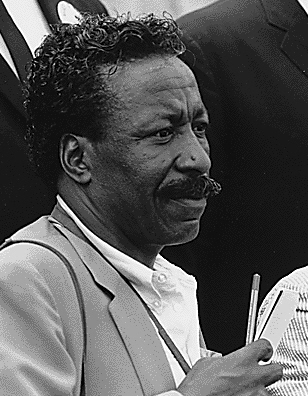Gordon Parks: Black Americans aimed to give long overdue exposure to the prolific photographic practice of the major African American photographer. It captured the strength and versatility of Gordon Parks’ photography, focusing on his documentation of black Americans from the 1940s to the 1970s.
Parks was one of the few black photographers to have gained success during this period and his achievement was as an important reference point at the time for black practitioners. Curator Mark Sealy, in the exhibition leaflet, wrote that: "recently many black photographers have turned away from documentary photography, arguing that this form has generally reinforced negative stereotypes of black people. Viewing Parks’ work now furthers this debate, raising questions around the sociopolitical nature of documentary photography and the practice of indigenous photographers internationally."
It was in this spirit that Gordon Parks: Black Americans set out to celebrate and explore Parks’ photography, reaffirming his position as one of the great photographers of the post-war period while foregrounding the issues that make his work acutely relevant.

Gordon Parks' photographic career began in earnest in the early 1940s with the legendary Farm Security Administration photography unit. In the struggle for social justice his camera became what he referred to as his weapon of choice against racism and social inequalities.
In 1956, as the only African American photographer on the staff of the hugely influential Life magazine, he documented the impact of racial segregation in the American South. In the 1960’s he explored the turbulence of the different political strategies of those involved in the struggle for social freedom: from Dr. Martin Luther King Jr.'s participation in the March on Washington to the self-declared revolutionary approach of the Black Panthers. Parks' focus on the question of social change was unequivocal.
Banner Image: Front cover from the exhibition leaflet for Gordon Parks: Black Americans, 1993.
About the artist: Gordon Parks at the Civil Rights March on Washington, 1963.
Autograph is a space to see things differently. Since 1988, we have championed photography that explores issues of race, identity, representation, human rights and social justice, sharing how photographs reflect lived experiences and shape our understanding of ourselves and others.